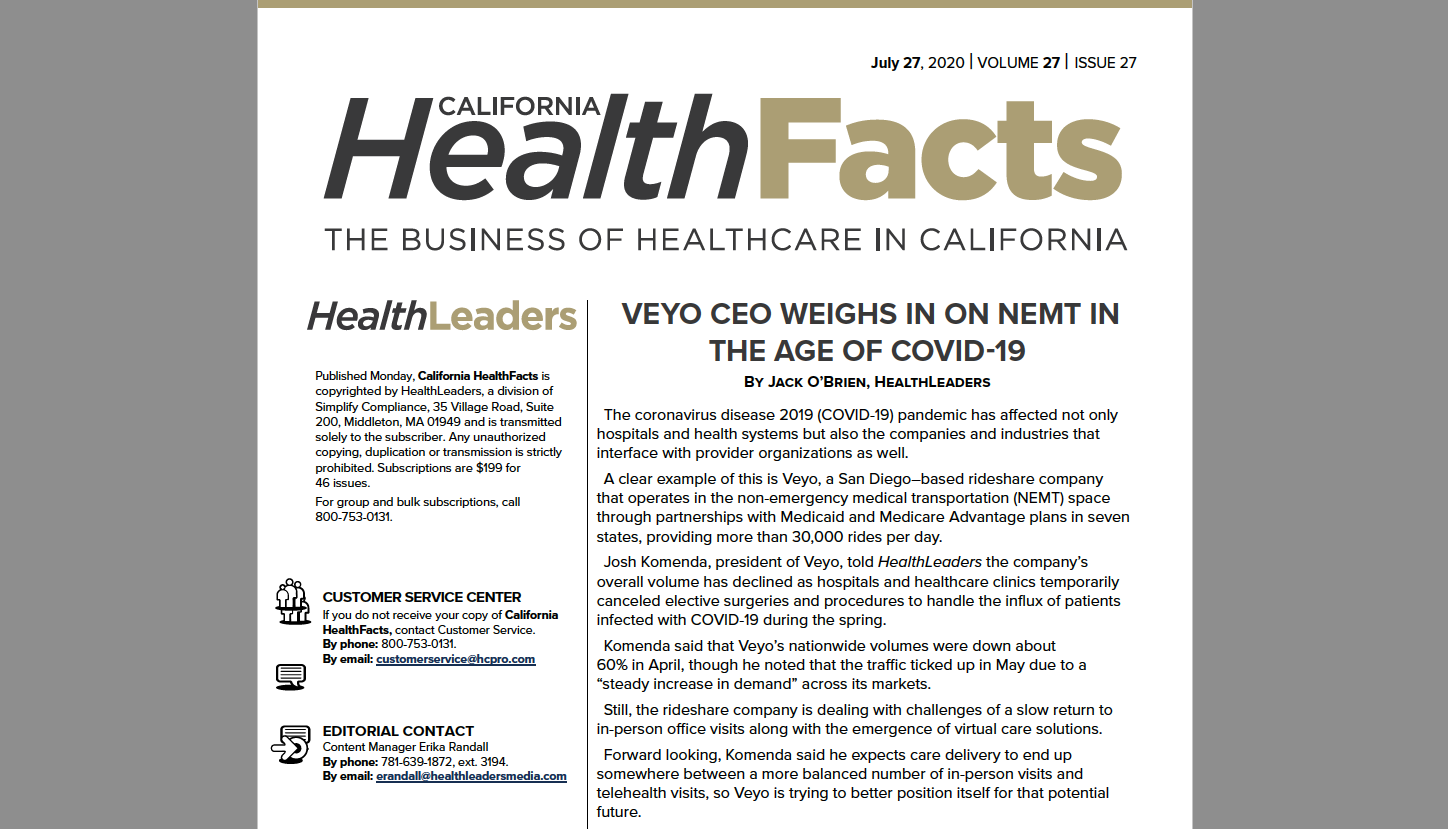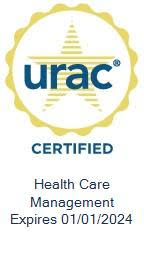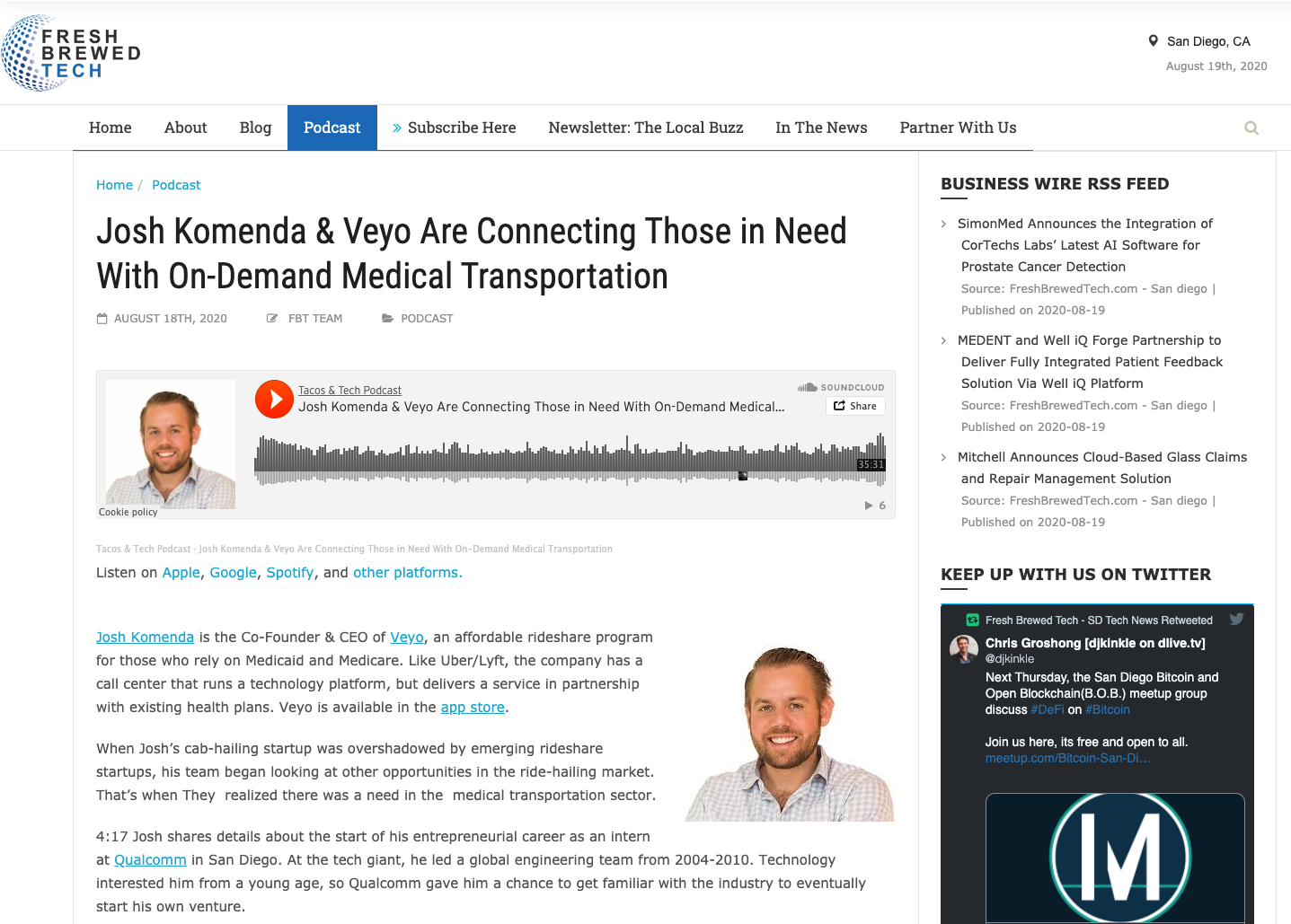California Health Facts: Veyo CEO Weighs in on NEMT in the Age of COVID-19
August 19, 2020
Veyo was recently featured in the July 27th edition of California HealthFacts. Veyo president, Josh Komenda, spoke with Jack O’Brien from HealthLeaders on how the COVID-19 pandemic has affected not only hospitals and health systems but also the companies and industries that interface with provider organizations as well. The article is reprinted below. Register for California HealthFacts here.
——-
“The San Diego-based rideshare company is dealing with challenges of a slow return to in-person office visits along with the emergence of virtual care solutions.
The coronavirus disease 2019 (COVID-19) pandemic has affected not only hospitals and health systems but also the companies and industries that interface with provider organizations as well.
A clear example of this is Veyo, a San Diego-based rideshare company that operates in the non-emergency medical transportation (NEMT) space through partnerships with Medicaid and Medicare Advantage plans in seven states, providing more than 30,000 rides per day.
Josh Komenda, president of Veyo, told HealthLeaders the company’s overall volume has declined as hospitals and healthcare clinics temporarily canceled elective surgeries and procedures to handle the influx of patients infected with COVID-19 during the spring.
Komenda said that Veyo’s nationwide volumes were down about 60% in April, though he noted that the traffic ticked up in May due to a “steady increase in demand” across its markets.
Still, the rideshare company is dealing with challenges of a slow return to in-person office visits along with the emergence of virtual care solutions.
Forward looking, Komenda said he expects care delivery to end up somewhere between a more balanced number of in-person visits and telehealth visits, so Veyo is trying to better position itself for that potential future.
“We do have to figure out a safer way to get some in-person business back, but there also could potentially be some models for telemedicine and home health that become more permanent fixtures in our system,” Komenda said. “One thing we’re looking at as a company is how can we develop models to better support telemedicine and home health when it makes sense for the more permanent scenarios.”
Due to the business model disruption, Komenda said Veyo has now pivoted to assisting its clients in different ways, such as offering technical support for logistics, delivering food for Meals on Wheels, and providing PPE to healthcare workers.
He said Veyo and NEMT providers could potentially serve as a useful tool for physicians and nurse practitioners to order for on-demand services like patients getting lab work done, or providing in-home care like dialysis treatment.
Prior to the coronavirus outbreak, Komenda said NEMT operators never had to seriously contemplate a pandemic mitigation plan but added that his company acted early on to protect its drivers and members.
Komenda said that Veyo has put basic safeguards into place, including cleaning standards for its vehicles, screening members for fevers prior to rides, and procuring personal protective equipment (PPE) for drivers. Veyo has also stopped multi-loading passengers as another precaution to maintain social distancing and stem the spread of infection.
Veyo has also developed a COVID-positive specialized fleet, according to Komenda, which transport infected patients or those suspected of being infected to critical care treatments.
Veyo has retrofitted its vehicles with plexiglass dividers between the driver and passengers, dressed drivers in head-to-toe PPE, and instituted a special set of procedures that avoid contact between driver and passenger. Following each trip, Komenda said the vehicle undergoes an extensive EPA-approved decontamination procedure.
He said it’s important for NEMT providers to build customer confidence during the crisis and adjust to the new healthcare delivery model.
“I think what I’ve been impressed with is our team figuring out where all the needs are, what we can do to adjust operations quickly to protect membership, and help keep things running and help out folks that are in need right now,” Komenda said.



